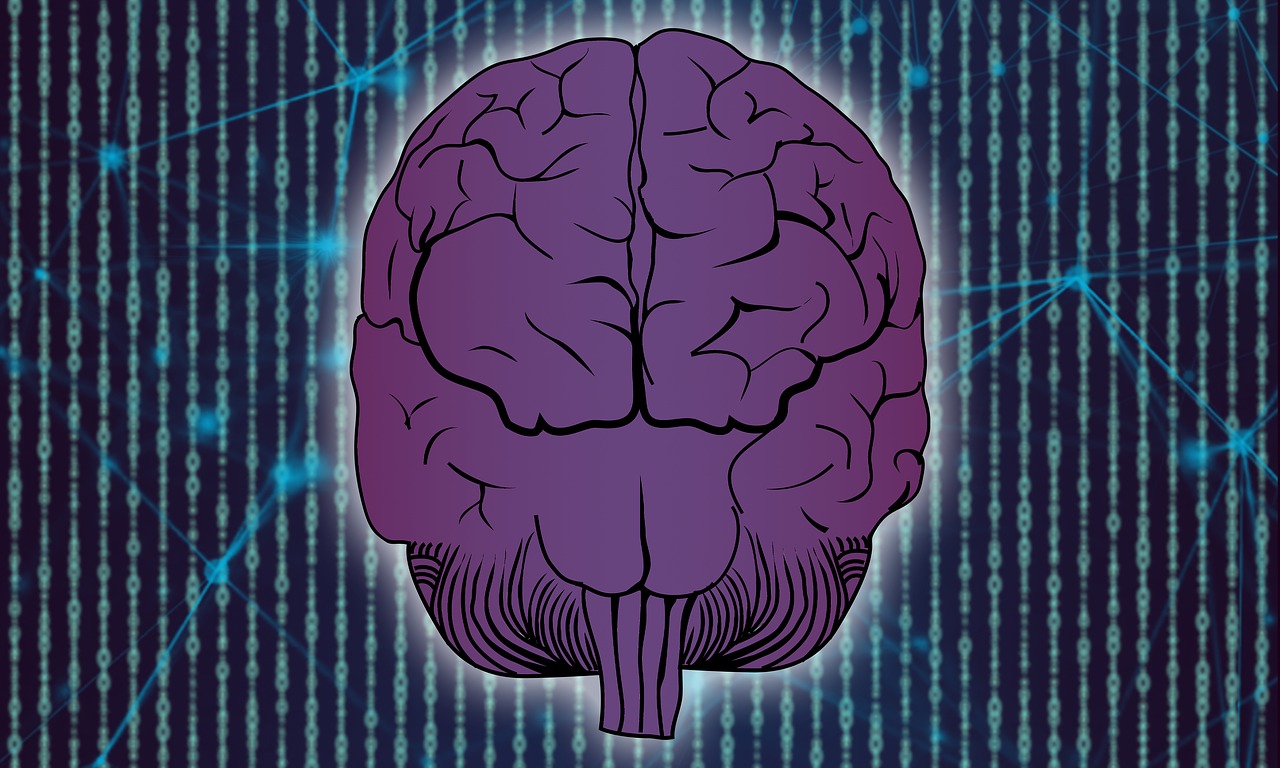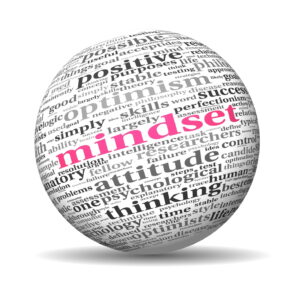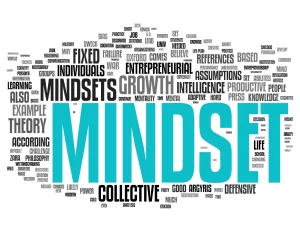The question how does the brain play into mindset is one that comes up quite often. The human brain is an incredibly complex and versatile organ, responsible for not only our cognitive abilities but also our mindset and the way we approach life.
Our mindset can have a profound impact on our success, happiness, and overall well-being. In this article, we will explore the fascinating connection between the brain, neuroplasticity, and mindset, as well as how to harness this knowledge to foster personal growth and development.
Introduction to Mindset
Our mindset is a collection of beliefs and attitudes that shape the way we view ourselves, others, and the world around us. It influences our thoughts, emotions, and behaviors, ultimately determining our success and happiness in various aspects of life. There are two primary types of mindsets that have been extensively researched: the fixed mindset and the growth mindset.
Fixed Mindset
Individuals with a fixed mindset believe that their intelligence, talents, and abilities are innate and unchangeable. They tend to avoid challenges and view failure as proof of their limitations. This mindset can lead to a lack of motivation to learn and grow, ultimately hindering personal and professional development.
Growth Mindset
On the other hand, those with a growth mindset embrace the idea that intelligence, talents, and abilities can be developed through hard work, persistence, and learning from mistakes. They see challenges as opportunities for growth and are more resilient in the face of setbacks.
A growth mindset fosters a passion for learning and continuous improvement, leading to greater success and satisfaction in life.
The Role of the Brain in Mindset
The brain plays a crucial role in determining our mindset. It is responsible for our cognitive processes, such as attention, comprehension, and self-reflection, which are essential for learning and personal growth. Furthermore, the brain’s ability to adapt and change, known as neuroplasticity, has significant implications for our mindset and our capacity to learn and develop new skills.
Neural Pathways and Learning
The brain is composed of billions of interconnected neurons that communicate with one another through synapses. These connections form neural pathways that enable us to process information, learn new skills, and adapt to our environment.
This must be considered when posing the question how does the brain play into mindset. As we learn and gain experience, our brain strengthens existing neural pathways and forms new ones, allowing us to become more proficient at various tasks.
For example, when learning to play a musical instrument, the brain creates new neural pathways related to the specific skills required, such as finger dexterity and auditory processing. Over time, with consistent practice and repetition, these connections become stronger, and the individual becomes more skilled at playing the instrument.
This process of neural adaptation is at the heart of how the brain plays into mindset. Our mindset is shaped by the neural pathways we create and strengthen throughout our lives, which in turn influence our beliefs about our potential for growth and development.
Fixed vs. Growth Mindsets in Learning
As mentioned earlier, individuals with a fixed mindset view their intelligence and abilities as static and unchangeable, while those with a growth mindset embrace the idea that they can develop their skills through effort and learning. This distinction has significant implications for how people approach learning and personal growth.
Fixed Mindset and Learning
People with a fixed mindset tend to avoid challenges and may give up easily in the face of setbacks. They view failure as evidence of their inherent limitations and are more likely to engage in self-defeating behaviors, such as procrastination and self-sabotage. This mindset can lead to a lack of motivation to learn and grow, ultimately hindering personal and professional development.
Growth Mindset and Learning
On the contrary, individuals with a growth mindset view challenges as opportunities for growth and are more resilient in the face of setbacks. They believe that intelligence and abilities can be developed through effort and persistence, fostering a passion for learning and continuous improvement.
This mindset encourages a positive attitude towards learning, leading to greater success and satisfaction in various aspects of life.
The Science Behind Mindset: Neuroplasticity
When analyzing how does the brain play into mindset, we must discuss neuroplasticity. Neuroplasticity is the brain’s ability to adapt, change, and reorganize itself in response to new experiences, learning, and challenges. This remarkable capacity allows us to develop new skills, overcome setbacks, and transform our lives in profound ways.
Neuroplasticity is the foundation of how the brain plays into mindset, as it enables us to create new neural connections and strengthen existing ones, ultimately shaping our beliefs about our potential for growth and development.
The Components of Neuroplasticity
There are several key components of neuroplasticity that contribute to our ability to learn and adapt:
- Synaptic Plasticity: The ability of synapses, the points of connection between neurons, to change in strength and efficiency. This allows our brain to create new neural pathways and strengthen existing ones in response to new experiences and learning.
- Neurogenesis: The generation of new neurons (nerve cells) in the brain. This process is essential for learning and memory and helps us adapt to new situations and challenges.
- Functional Reorganization: The brain’s ability to reorganize itself in response to injury or damage, allowing other areas of the brain to take over the functions of the affected region.
These components of neuroplasticity enable our brain to adapt and change throughout our lives, providing the foundation for the development of a growth mindset and the ability to learn and grow.
The Connection Between Mindsets and Neuroplasticity
Knowing that our brain has the capacity to change and adapt is a powerful tool for fostering a growth mindset. Research has shown that simply being aware of neuroplasticity and the brain’s ability to change can help shift individuals from a fixed mindset to a growth mindset.
Learning about neuroplasticity and mindset change
Several studies have explored the impact of teaching children about neuroplasticity and its implications for learning and personal growth. These studies have found that learning about neuroplasticity can improve student motivation, academic performance, and even brain activity.
By understanding that their brains can change and grow, students are more likely to adopt a growth mindset. They then begin to embrace the idea that their intelligence and abilities can be developed through effort and persistence.
The brain’s response to mistakes
Another factor to consider when answering how does the brain play into mindset is the examining how the brain responds to mistakes. The fascinating connection between neuroplasticity and mindset is the way our brain responds to mistakes and setbacks.
Research has shown that individuals with a growth mindset exhibit greater neural activity when confronted with errors than those with a fixed mindset.
This heightened neural activity reflects an increased focus on learning from mistakes and using them as opportunities for growth, as opposed to viewing them as evidence of inherent limitations. This is additional information when answering the question, the question how does the brain play into mindset.
How the Brain Supports a Growth Mindset
The brain’s capacity for neuroplasticity provides a solid foundation for the development of a growth mindset. By understanding how the brain can change and adapt in response to new experiences and challenges, we can harness this knowledge to foster personal growth, resilience, and a passion for learning.
Embracing challenges and learning from mistakes
A growth mindset involves viewing challenges as opportunities for growth and learning from our mistakes. This mindset is supported by the brain’s ability to create new neural connections and strengthen existing ones through repetition and practice.
By persistently tackling challenges and learning from our setbacks, we can develop new skills and abilities, overcome obstacles, and ultimately achieve our goals.
Cultivating a Passion for Learning
A growth mindset encourages a passion for learning and continuous improvement. By understanding that our brain can change and grow, we can embrace the idea that we are not limited by our current abilities but can develop them through effort and persistence.
This mindset fosters a love of learning and an eagerness to explore new experiences, ultimately leading to greater success and satisfaction in various aspects of life.
Developing, Maintaining, and Changing Mindsets
Our mindset is influenced by a combination of factors, including our environment, genes, and experiences. By increasing our awareness of neuroplasticity and how the brain can adapt and change, we can take steps to develop, maintain, or change our mindset, ultimately shaping our beliefs about our potential for growth and development.
Developing a growth mindset
To develop a growth mindset, it’s essential to embrace the idea that intelligence, talents, and abilities can be developed through effort and persistence. This involves recognizing and challenging fixed mindset beliefs, engaging in challenging tasks, and continuously seeking opportunities for growth and learning.
Maintaining a growth mindset
Maintaining a growth mindset requires ongoing effort and self-reflection. It’s essential to stay mindful of your thoughts and beliefs, recognize when you may be slipping into a fixed mindset, and take steps to refocus on growth and development. This may involve seeking out new challenges, practicing self-compassion, and embracing a lifelong love of learning.
Changing from a fixed to a growth mindset
If you recognize that you have a fixed mindset, it’s possible to shift towards a growth mindset. To accomplish this, you must increase your awareness of neuroplasticity and the brain’s ability to change. You must understand that your brain can adapt and develop new skills. You will then begin to embrace the idea that your current abilities have are not limiting you. Consequently, you will begin to grow and improve through effort and persistence.
The Benefits of a Growth Mindset
Adopting a growth mindset can have numerous benefits for our personal and professional lives, including:
- Increased motivation and persistence
- Greater resilience in the face of setbacks and challenges
- Enhanced problem-solving and critical thinking skills
- Improved academic performance and career success
- Higher levels of self-esteem and self-confidence
- Greater satisfaction and happiness in various aspects of life
Practical Strategies for Cultivating a Growth Mindset
There are several practical strategies that can help you cultivate a growth mindset and harness the power of neuroplasticity to foster personal growth and development. These include:
- Embrace challenges: Seek out new experiences and challenges that push you outside of your comfort zone. This will help you develop new skills, expand your knowledge, and strengthen your neural connections.
- Focus on the process, not the outcome: Instead of fixating on the end result, focus on the process of learning and growth. Celebrate your progress and the effort you put into your tasks, rather than just the final outcome.
- Learn from failure: View setbacks and failures as opportunities for growth and learning. Analyze what went wrong and use this information to improve your approach moving forward.
- Practice self-compassion: Be kind to yourself when faced with challenges and setbacks. Remember that everyone makes mistakes and experiences failure, and these moments are opportunities for growth and learning.
- Surround yourself with supportive, growth-minded individuals: Choose friends, mentors, and colleagues who embrace a growth mindset and encourage your personal development.
- Engage in lifelong learning: Continuously seek out new experiences, knowledge, and skills to keep your brain engaged and adaptable.
Conclusion and Final Thoughts
In order to answer the question how does the brain play into mindset we must understanding how the brain plays into mindset. More specifically, how neuroplasticity supports a growth mindset, can have transformative effects on our lives.
By embracing the idea that our intelligence, talents, and abilities are malleable and can be developed through effort and persistence, we can foster personal growth, resilience, and a passion for learning.
Implementing the practical strategies outlined in this article can help you cultivate a growth mindset and harness the power of neuroplasticity. Thus, helping you to achieve greater success and satisfaction in various aspects of your life. So, next time you face a challenge or setback, remember that your brain is incredibly adaptable and that you have the power to




No comments! Be the first commenter?